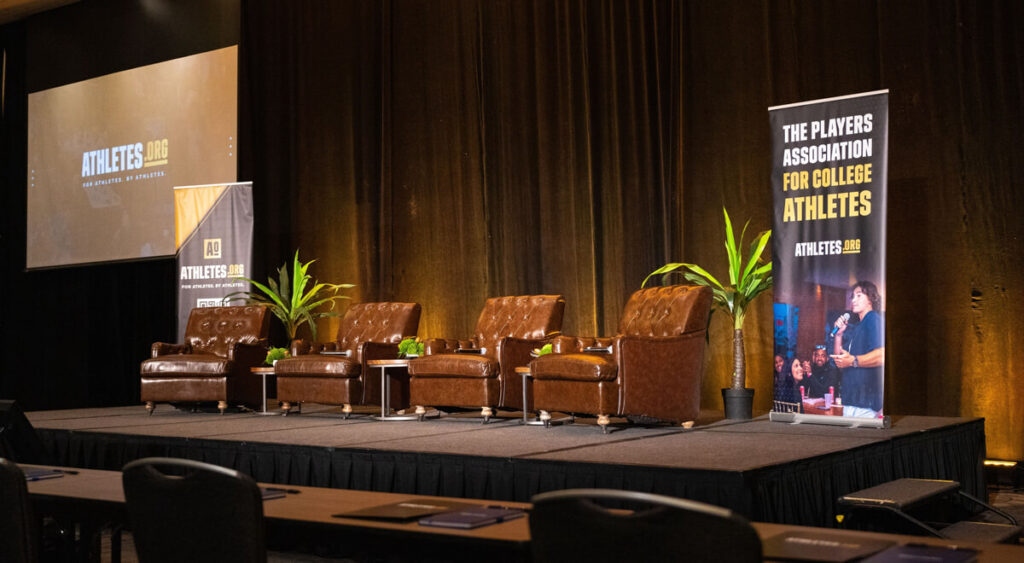
On behalf of its more than 4,000 members, and for college athletes everywhere, Athletes.org (AO) filed an Amicus Curiae brief requesting clarification on the impending settlement on House v. NCAA. The brief, filed in the United States District Court Northern District of California, included input from legal experts such as Jim Quinn and Gary Shipman.
Athletes.org, the players association for college athletes, represents current and former players in the college ranks; including some of the named plaintiffs in House who, as members, previously wrote to the Court to emphasize the necessity of fair representation in collegiate athletics decisions and rule-making.
“It is important to get real clarity around the House Settlement for all the parties affected by its outcome, specifically the athletes expected to be held to its terms,” said Co-Founder of Athletes.org, Brandon Copeland. “While the settlement is a start of positive change for college athlete compensation, it is only that – a starting point. There are still many concerns that need to be addressed as we take the next step into this new era of college athletics to make it a safe and sustainable ecosystem for every party who contributes to its success – especially as universities place even more emphasis on revenue growth creating misalignment with college athletes’ holistic development.”
Athletes.org recognizes that the proposed settlement is a necessary first step in the right direction of addressing long-standing injustices that have existed within college athletics; but that does not mean that the proposed settlement solves these issues. The proposed settlement signals a necessary shift from the restrictive, outdated model that has governed college sports for more than 150 years.
“Our members have asked us to get this clarity,” said Copeland. “They want this brief filed to make sure that college athletics leadership realizes that while this settlement is a positive first step, it is not, in fact, a collectively bargained agreement.”
The amicus brief stresses that the proposed settlement is not a replacement for collective bargaining for college athletes, and that this settlement does not ensure that minimum standards protecting college athletes are met.
“In the pro ranks, athletes have tools and resources to protect them, and in the college space it should be the same,” said Copeland. “Unfortunately, the system does not protect college athletes due to the self-regulating nature currently in place. With more lawsuits currently being filed against schools, conferences, and the NCAA, we are advocating for a better way. We want to ensure a sustainable future for college athletics–one without constant litigation and with safeguards for progress in college athlete compensation.”
Other key highlights of the brief, written to raise concerns and ask for more explanation, include:
- The fact that vital health and safety standards for college athletes are not addressed.
- Because of the lack of collective bargaining, the settlement is not protected under the non-statutory labor exemption that shields professional leagues from certain antitrust claims.
- Future litigation is a certainty – as the settlement does not protect from future lawsuits.
- Agreements and contracts with college athletes are being misused due to the lack of clarity from the settlement.
“AO members are hopeful that these concerns will be heard and considered by the Court before the proposed settlement is approved,” Copeland said. “AO athletes are organizing and amplifying their voices together in order to make sure every athlete is treated fairly now and in the future.”
Athletes.org, “The Players Association for College Athletes,” is a voluntary membership organization whose membership includes more than 4,000 current and former college athletes. AO exists to educate, organize and represent college athletes as their chosen players association in an attempt to ensure their seat at the table in the ever-changing landscape of college sports.